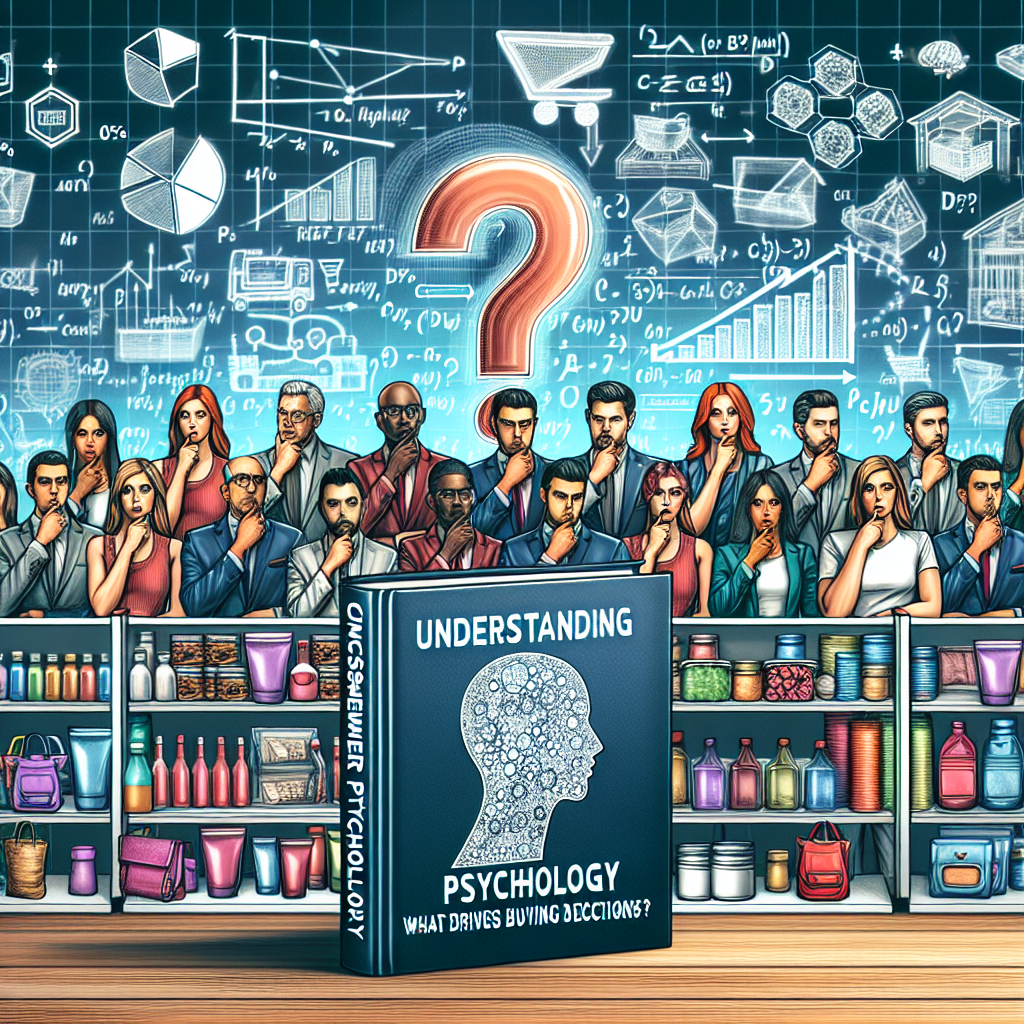Understanding Consumer Psychology: What Drives Buying Decisions?
In today’s fast-paced marketplace, understanding consumer psychology is essential for businesses seeking to appeal to their target audiences. Psychology impacts how consumers perceive brands, products, and services, ultimately influencing their buying decisions. By delving into the psychological principles that govern consumer behavior, companies can tailor their marketing strategies to meet the needs and desires of their customers more effectively.
The Fundamentals of Consumer Psychology
Consumer psychology combines insights from psychology, marketing, sociology, and economics to explore the cognitive processes behind purchasing behaviors. It investigates how consumer perceptions, emotions, attitudes, and motivations affect their buying choices. Understanding these psychological drivers allows businesses to predict trends, enhance customer experience, and build brand loyalty.
Key Drivers of Buying Decisions
-
Emotional Connections: Emotions play a critical role in consumer decision-making. Feelings of happiness, nostalgia, or even fear can lead to impulsive purchases or strong brand loyalty. Brands often evoke emotional responses through storytelling, compelling advertising campaigns, and social responsibility initiatives. For instance, a commercial featuring a heartwarming story may resonate more powerfully with viewers than a straightforward product pitch.
-
Social Influence: Consumers are greatly affected by the opinions and behaviors of others, which is why social proof is a powerful marketing tool. Recommendations from friends, reviews from previous buyers, and endorsements from influencers can sway purchase decisions. Understanding the power of social influence, brands often leverage testimonials, user-generated content, and influencer partnerships to foster trust and reliability.
-
Cognitive Dissonance: This psychological phenomenon occurs when there is a conflict between a consumer’s beliefs and their behaviors post-purchase. To alleviate discomfort, consumers may rationalize their decisions or seek out positive reviews to confirm their purchases. Brands can mitigate cognitive dissonance by providing reassurance post-purchase through excellent customer service and clear communication.
-
Decision Fatigue: In an age of overwhelming choices, consumers can experience decision fatigue, leading to poor decision-making or avoidance altogether. Brands can simplify the purchasing process by minimizing options, offering curated recommendations, and using user-friendly design to facilitate quick and easy buying decisions.
-
Scarcity and Urgency: The principle of scarcity suggests that people place a higher value on limited resources. When consumers perceive an item as scarce or time-sensitive, they are more likely to act quickly. Marketers often use phrases like “limited edition” or “only a few left” to create a sense of urgency that drives sales.
- Price Perception: The way consumers perceive value influences their buying decisions. Price anchoring—where consumers compare prices against a reference point—can significantly impact their evaluations. Brands can utilize this psychological principle by showcasing discounts or comparing new prices against a higher original price to encourage purchases.
The Role of Brand Loyalty
Brand loyalty is a crucial aspect of consumer psychology. A strong emotional connection can lead to repeat purchases and advocacy. Companies invest in building brand loyalty through consistent messaging, community engagement, and delivering quality experiences. By fostering a sense of belonging, brands can create a loyal customer base that advocates for their products and services.
Adapting to Consumer Behavior
For businesses to thrive, they must continuously adapt their strategies based on evolving consumer psychology trends. The rise of e-commerce, social media, and new technologies has transformed the way consumers interact with brands. Companies that stay attuned to these changes can leverage data analytics to gain insights, understand consumer preferences, and tailor their offerings accordingly.
Conclusion
Understanding consumer psychology is not merely an academic exercise; it is a vital aspect of successful marketing and business strategy. By recognizing the emotional, cognitive, and social factors that drive buying decisions, businesses can connect more effectively with their audiences. As consumer behaviors continue to evolve, brands that prioritize psychological insights will be better positioned to capture the hearts and minds of their customers, foster loyalty, and drive sustainable growth. Embracing the science behind buying decisions ultimately leads to creating meaningful experiences that resonate far beyond the transaction.














Leave feedback about this
You must be logged in to post a comment.